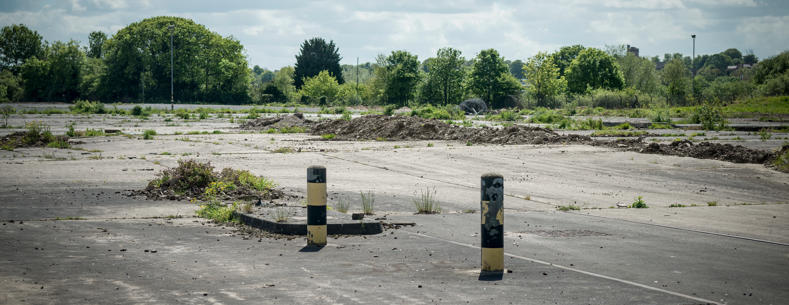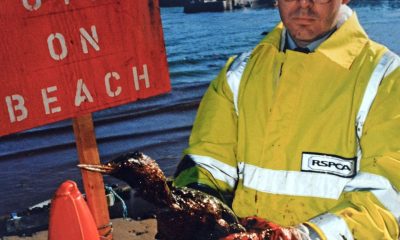News
Mums in Wales face shortfall in mental health services

THOUSANDS of women in Wales who need specialist support for mental health problems during pregnancy or following birth are unable to access the care they need because of where they live. And others needing specialist inpatient care must receive it in England because Wales does not have a mother and baby inpatient unit for women suffering the most severe mental health conditions.
Perinatal mental health problems are one of the most common complications experienced during pregnancy and after birth with up to one in five women – and up to one in 10 dads affected. Symptoms include depression, anxiety, obsessive compulsive disorder, eating disorders and postpartum psychosis.
It means that in Wales more than 6,000 new mothers every year will experience a mental health problem during pregnancy or in the 12 months following the birth of their child. If left untreated, these conditions can have a devastating impact on women and their families, making it harder for parents to provide the care babies need for healthy social, intellectual and emotional development.
As the NSPCC launches its new campaign, Fight for a Fair Start, which calls for improved perinatal mental health provision, the charity has highlighted that Wales’s seven health boards have just one specialist health visitor and four specialist perinatal mental health midwives between them.
These roles can offer vital early help and continuity of care to mums and their families affected by perinatal mental health problems and help reduce demands on other services which have to support parents suffering problems.
The charity has also highlighted that new mothers experiencing the most severe perinatal mental health conditions are not able to access appropriate inpatient care in Wales because there is no mother and baby unit. Instead, women who need specialist inpatient care are either admitted for treatment in adult psychiatric wards – where they may be separated from their child – or in mother and baby units in England.
Launching Fight for a Fair Start today (19 July) NSPCC Cymru has called for:
- Dedicated specialist perinatal mental health midwives and health visitors in each health board area, to help identify and support women and their families affected by perinatal mental health problems.
- All women and their families to be able to access a mother and baby unit in Wales.
- Greater investment in specialist services to ensure that all women and their families can access high quality specialist perinatal mental health services, wherever they live in Wales
Dr Sarah Witcombe-Hayes, Senior Policy Researcher at NSPCC Wales, said: “New mums and dads in Wales are still not receiving the mental health support that they need to give their babies the best start in life. Experiencing perinatal mental health problems can make it harder for parents to provide the sensitive and responsive care that babies need at such an important time, and that is why it is so crucial to have the right support in place for families.
“Access to this vital support should not be dependent upon where you live. Having at least one specialist mental health midwife and specialist perinatal mental health visitor in each health board in Wales would be a significant step towards ensuring that these problems are identified early and mums and their families receive the best care.
“Greater investment is also needed. The Welsh Government must make sure that all women and their families affected by the most serious problems can access potentially lifesaving treatment and support from a mother and baby unit in Wales when they need it.”
North Wales mum Sally Wilson developed postpartum psychosis in 2015 just days after the birth of her daughter Ella but was unable to access the locally-based help she needed such as a mother and baby unit. She said: “I experienced delusions, hallucinations and I was terrified I had harmed Ella but I was admitted to a general adult psychiatric unit, which was scary and traumatic, while Ella went home with my partner.
“In North Wales there weren’t any specialist perinatal mental health teams and no specialist mother and baby unit with the nearest two hours away in England. It took me a long time to access the correct treatment and not only did this have an impact on my recovery but it also affected early bonding with Ella.
“In the absence of specialist help, I was fortunate that my partner’s research background meant he was able to investigate evidence-based treatment options, I appreciate that is not the case for everyone. I also relied heavily on the charity Action on Postpartum Psychosis to help me recover. Ultimately, this saved my life.”
Dr Jess Heron, CEO of Action on Postpartum Psychosis added that they supported the NSPCC Campaign. She said: “Most women who develop Postpartum Psychosis will need admission to a specialist Mother and Baby Unit. It is not right that women who become ill in Wales have to be admitted far away from their families in England, or risk being separated from their infant.
“Psychiatric illness is the leading cause of maternal death in the postpartum year in the UK. We fully endorse the call made by NSPCC for women to have immediate access to a mother and baby unit within a reasonable distance of their home if they need it, and to have access to specialist care within perinatal mental health teams wherever they live.”
The NSPCC campaign has been supported by Jo Malone London who also fund direct services to new and prospective parents, focussing on supporting parents with their mental health problems to help them develop secure and healthy relationships with their children.
The NSPCC is inviting people to join the campaign by raising their voice and signing the Fight for a Fair Start petition.
Crime
Pendine man jailed for abducting and drugging teenage girl

Offender had 1,101 unlawful images of children stored on his devices, including 122 Category A images – the most serious classification.
A PENDINE man has been jailed after admitting abducting a teenage girl, supplying her with drugs and keeping more than a thousand indecent images of children.
Richard Knight, aged 73, from Pendine, Carmarthenshire, was sentenced to three years and nine months in prison at Swansea Crown Court following what police described as a lengthy and complex investigation.
Officers from Dyfed-Powys Police were alerted in the early hours of Monday, April 11, 2022 after a distressed 15-year-old girl phoned her mother asking to be collected, saying she had taken drugs at Knight’s home.
Police forced entry to the address after receiving no answer and finding concerns for the girl’s safety. Inside, officers discovered a small cannabis grow but no occupants. It later emerged Knight had driven the girl home himself.
He was arrested shortly afterwards on suspicion of drink driving and drug offences. A further search of the property uncovered several types of controlled drugs and a number of digital devices.
During interview, the teenager told officers she had agreed to meet Knight but believed he knew her age and that she had not told her mother where she was going. She described being given various drugs, including substances hidden inside fruit pastels. CCTV later showed Knight buying the sweets before collecting her.
Digital forensic analysis revealed 1,101 unlawful images of children stored on his devices, including 122 Category A images – the most serious classification.
Drug experts valued the cannabis grow at between £6,000 and £20,000. Officers also seized six different types of Class A drugs from the address.
Guilty pleas before trial
Knight was charged with 12 offences including child abduction, possession and making of indecent images of children, and being concerned in the supply of controlled drugs.
He admitted the drug offences in April last year and later pleaded guilty to three counts of making indecent images. Although he initially denied child abduction, he changed his plea immediately before a trial was due to begin at court in January.
‘Very serious case’
Detective Constable Jon Gouldson said: “This was a very serious case involving a man who groomed a young and vulnerable girl for his own satisfaction.
“There is no doubt he knew that taking this 15-year-old into his home without parental permission was wrong.
“Taking or keeping a child under 16 without consent is a crime. There are no grey areas.
“We welcome today’s sentence and remain committed to bringing offenders like this before the courts.”
Support available
Anyone concerned about their own behaviour or thoughts towards children can seek confidential help from the Lucy Faithfull Foundation, which runs the Stop It Now service aimed at preventing abuse before it happens.
Community
Angle lifeboat crew celebrate 13 new qualifications after intensive assessment week

THIRTEEN volunteer crew members at Royal National Lifeboat Institution’s Angle Lifeboat Station have successfully completed a demanding week of assessments, marking the culmination of months of training and preparation.
The pass-outs strengthen the station’s operational capability and ensure the all-weather lifeboat remains fully crewed and ready to respond to emergencies across the Milford Haven Waterway and the wider Pembrokeshire coast.
Three crew members – Anthony Thomas, Gareth Thomas and Nathen Houston – qualified as All-weather Lifeboat (ALB) Navigators after completing a four-hour practical and theory assessment.

Their test covered a range of search and rescue scenarios, including simulated taskings, radar work, position fixing and traditional paper chart navigation – all skills vital during poor visibility and challenging sea conditions.
A further ten volunteers – Phil Jones, Tom Meehan, Nick Gale, Rob Davies, Finn Frost, James Findlay, Allen Price, Seymore Phillips, Graham Booth and Matt Nicholas – passed their Tier 2 ALB Crew assessments.
The qualification tests every aspect of lifeboat operations, from man overboard recovery and towing to mooring, berthing, helming and anchoring. Candidates were put through their paces by an RNLI assessor in realistic scenarios designed to mirror live shouts.
Station representatives said the results reflect the commitment and professionalism of the volunteer crew, many of whom balance training with full-time jobs and family life.
The latest qualifications come as the Angle crew continue to play a crucial role in rescues around Milford Haven and the south Pembrokeshire coastline, one of the busiest and most complex maritime areas in Wales.
A spokesperson said the achievements “demonstrate the dedication of our volunteers and the continued strength of lifeboat operations from the town of Milford Haven.”
With 13 newly qualified crew now ready to serve, the station is better equipped than ever to respond when the pager sounds.
News
Wales could tax disused land to unlock stalled housing sites

A NEW tax on long-vacant plots of land could be introduced in Wales in a bid to force stalled housing sites back into use and speed up housebuilding, ministers have confirmed.
The Welsh Government and the UK government are preparing a joint consultation on devolving powers that would allow Wales to create a vacant land tax targeting sites that have planning permission but remain undeveloped.
Ministers say the move is aimed squarely at discouraging “land banking” — where land is bought and held in the hope its value will rise, rather than being built on — a practice they argue is worsening the housing shortage.
Research commissioned by the Welsh Government previously identified 456 “stalled” sites across Wales, including 376 earmarked for homes, that have failed to progress.
Finance secretary Mark Drakeford said the proposals were about behaviour, not revenue.
“This is not about raising money but changing behaviour and getting more houses built,” he said. “A tax on land that has been designated for development but has not yet been developed could encourage building within expected timescales.”
The powers would first need to be transferred from Westminster before any levy could be introduced by the Senedd Cymru.
Consultation expected
At Westminster, Welsh Secretary Jo Stevens told MPs the change would have a “positive and tangible” impact.
She said: “There are pockets of land being held for ever and ever and we need to bring them back into use.”
Officials have indicated the consultation will be launched soon, though it is not expected before the next Senedd election.
Any new tax would require approval from both Houses of Parliament and the Senedd before coming into force.
Political divide
The plans come as housing supply remains a major political battleground ahead of the election, with Plaid Cymru and other opposition parties pressing Labour to go further on devolution and regeneration powers.
First Minister Eluned Morgan has previously called for additional powers and funding from Prime Minister Keir Starmer, saying Wales needs more tools to tackle housing and infrastructure challenges.
Plaid Cymru has welcomed the consultation, though it argues Wales should also gain control over areas such as rail and the Crown Estate.
Stevens rejected calls to devolve the Crown Estate, warning it could disrupt investment and delay offshore energy projects.
Opposition scepticism
Welsh Conservatives questioned whether the proposals would deliver real change.
Shadow finance spokesman Sam Rowlands said ministers must provide clear data and timescales.
“If this is truly about building more homes rather than raising revenue, ministers should be upfront with the Welsh public about the impact,” he said. “Warm words are not enough.”
Ministers insist the aim is to encourage regeneration, prevent dereliction and unlock brownfield land for affordable homes — particularly in towns where unused plots have remained empty for years.
If approved, Wales would join a growing number of governments looking at fiscal measures to push developers to build sooner rather than later.
The proposal is not new. The Welsh Government first identified a vacant land tax as a priority back in 2018, when ministers began formally requesting powers from Westminster to introduce it. Research published by Senedd Cymru shows those discussions dragged on for years, with talks repeatedly stalling as the UK Treasury sought further evidence and clarification, leaving the plans effectively at an impasse. At one stage ministers said six years had passed with little progress. The latest joint consultation therefore marks the first real movement in nearly a decade — and could finally unlock a policy long promised as a way to bring derelict and unused sites back into productive use across Wales.
-

 Health7 days ago
Health7 days agoHealth board targets rise in steroid and gym drug use across west Wales
-

 Health22 hours ago
Health22 hours agoHealth Board to decide future of nine key services at two-day meeting
-

 Crime7 days ago
Crime7 days agoTeacher injured and teenager arrested for attempted murder at Milford Haven School
-

 Business3 days ago
Business3 days agoComputer Solutions Wales under fire from customers
-

 Business6 days ago
Business6 days agoSix-figure negligence victory leaves retired builder trapped in divorce limbo
-

 News7 days ago
News7 days agoReform appoints Dan Thomas to lead party in Wales
-

 Sport7 days ago
Sport7 days agoWales name squad for Six Nations opener against England
-

 Business5 days ago
Business5 days agoMinimum alcohol price to rise by 30 per cent as retailers warn of border impact



























